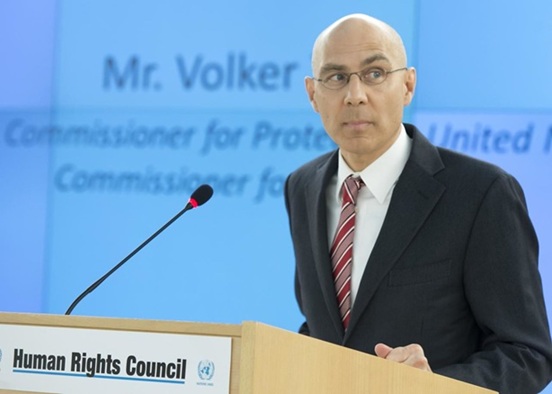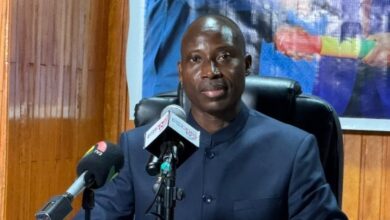UN Rights Chief Warns of Growing Threats to Press Freedom Amid AI and Global Turmoil

The UN High Commissioner for Human Rights, Volker Türk, has issued a stark warning on the occasion of World Press Freedom Day, May 3, 2025, stressing that press freedom is under unprecedented threat globally — from violent repression to the unchecked rise of artificial intelligence.
In a powerful message, Türk described free and independent media as “the lifeblood of a resilient society,” essential for fostering critical thinking, promoting accountability, and combating disinformation. Yet, he noted, governments and other powerful actors are increasingly failing in their duty to protect journalists.
“States harass, detain, torture and even kill media workers, simply for doing their jobs,” Türk said, adding that at least 20 journalists have been killed so far in 2025, with impunity remaining the norm in more than 80 percent of such cases.
His remarks came as conflicts intensify, climate change worsens, and societies become more polarized — all circumstances in which the role of a free press is more crucial than ever. From exposing corruption to documenting war and environmental destruction, the press “tells the story behind events – big and small,” he said.
Türk expressed particular concern about the growing influence of artificial intelligence (AI), warning that while it can support journalistic work, it also poses significant risks to press freedom. He noted that AI-based algorithms shape public perception, while some governments are using AI to surveil journalists and their sources, eroding privacy and silencing dissent.
“AI is entirely overhauling how information is produced, distributed, and consumed,” he said. “A small group of corporations and individuals now wields near-total control over AI technology and, with it, global media narratives.”
Women journalists, Türk emphasized, are disproportionately targeted by online abuse and harassment, further discouraging female participation in public discourse.
Calling for urgent reforms, Türk urged governments to ensure the safety of journalists and to regulate AI in ways that protect human rights. He also called for more transparency from tech companies in how their algorithms function and how they impact content distribution.
As part of the UN’s response, Türk announced that the Office of the High Commissioner for Human Rights is launching new guidance with UNESCO to help tech firms assess how their platforms and tools affect journalists and critical voices.
“World Press Freedom Day is an opportunity to change course,” Türk said. “A free, independent, and diverse media can help to heal the divisions in our societies. We must do everything in our power to protect it and allow it to flourish.”




